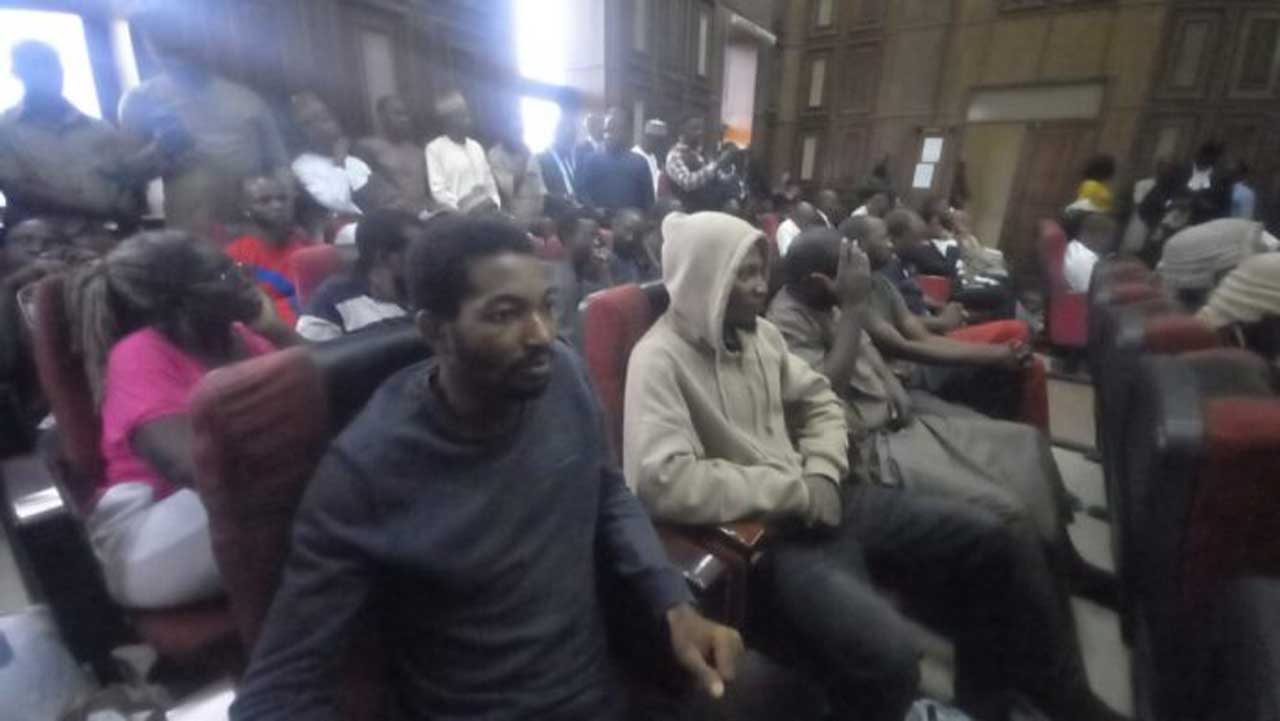
The international human rights watchdog, Amnesty International, recently called for the unconditional release of over 1,000 #EndBadGovernance protesters who are currently in prison custody nationwide following their participation in the protest.
Similarly, the Emeritus Catholic Archbishop of Abuja, John Cardinal Onaiyekan,Transparency International (TI), renowned human rights activist Femi Falana, and others have vociferously urged the federal government to expedite the release of the protesters and other individuals being detained in connection with the protest.
According to Falana, SAN, no fewer than 2,111 protesters were arrested in connection with the protest, out of which 1,403 have been secretly arraigned in various courts and ordered to be remanded in prison custody due to a lack of legal representation.
This comes after Justice Emeka Nwite of the Federal High Court in Abuja reportedly granted the police a 60-day extension to detain 124 protesters, including at least 22 minors. In another development, a Federal High Court in Abuja issued an order freezing the bank accounts of 32 individuals and companies allegedly linked to the #EndBadGovernance protest.
It is noteworthy that before the protest, the Federal Government and some state governments openly acknowledged that the right to protest is a constitutional right and, therefore, urged the would-be protesters to conduct their protest in a peaceful manner devoid of violence. The Lagos State government not only permitted the would-be protesters to protest but also directed them to do so in designated places in Lagos. However, the protest has culminated in the arrest and detention of protesters who have been thrown into prison on accusations of terrorism, treason, and treasonable felony under the Terrorism (Prevention & Prohibition) Act.
Ten of the protesters who were arrested in Abuja, Kaduna, Kano, and Gombe were last Monday, arraigned before a Federal High Court in Abuja on a six-count charge bordering on alleged treason, intent to destabilise Nigeria, conspiracy to commit a felony and inciting to mutiny, an offence punishable under section 97 of the penal code.
The defendants are equally accused of levying war against the state to intimidate the president by attacking and injuring police officers and burning police stations, the High Court complex, the NCC complex, the Kano printing press, the Kano Government House and several other buildings. All ten protesters pleaded not guilty to the six-count charge.
It is unfortunate that the protest, which was well founded on the hardship Nigerians are going through as a result of the economic downturn in the country was marred in some places by violence and attack on some public personnel and utilities. However, the Tinubu government should handle this matter with the utmost caution so as not to send a wrong signal to the world that the government is insensitive to citizens’ right to protest. The continued detention of these protesters without trial and the freezing of their bank accounts are not compatible with democracy and could trigger another round of protests.
Government should be seen to lay the groundwork for peace. Besides, the detainees have been kept in custody for longer than permitted by the constitution; and this should worry all democrats.
The truth is that young people in this country—those in the age bracket of, say, 18 to 45, who could technically be categorised as the younger generation—are seething with anger, perhaps now more than ever, over the way they are constantly being shortchanged in Nigeria. They are angry about the country’s deteriorating politics, increasing youth unemployment, the failed education system, and many other anomalies. The paradox is that Nigerian youth constitute a significant percentage of our population,
It is worrisome that political officeholders who have looted the treasury are freely walking the streets untouched. Do we have two criminal justice systems in Nigeria—one for the rich and another for the poor? The painful aspect is that while there are abundant laws against police brutality and human rights violations in Nigeria, the Nigerian police still go about arresting and detaining suspects and dumping them in prison without bail or trial. As stipulated in the 1999 Constitution, every citizen is presumed innocent until proven guilty by a court of law of competent jurisdiction.
Additionally, any person who is arrested or detained shall be informed in writing within 24 hours, in a language he understands, of the facts and grounds for his arrest or detention. If a person is arrested either to be charged in court or upon reasonable suspicion of committing an offence, he or she must be charged in court within a reasonable time not exceeding 48 hours, failing which he should be granted bail.
It is self-destructive to continue shortchanging the young people, the leaders of tomorrow. The beauty of democracy, in contrast to the totalitarianism and dictatorship of the military regimes in Nigeria, is that citizens are free to express their opinions without any form of intimidation, persecution, or victimisation. The rule of law ought to reign supreme over the arbitrary and capricious exercise of police power.
Peaceful protest is a fundamental human right enshrined in the Nigerian Constitution. The detention of a suspect in prison without bail or trial is unconstitutional and actionable in law. In a democracy, the government must respect the voices of its citizens. Peaceful protests are a means for people to express their views, grievances, and demands.






